
The Major Arcana are the named or numbered cards in a cartomantic tarot pack, the name being originally given by occultists to the trump cards of a normal tarot pack used for playing card games. There are usually 22 such cards in a standard 78-card pack, typically numbered from 0 to 21. The name is not used by tarot card game players.

The Two of Wands is a Minor Arcana tarot card.

Five of Wands or Five of Batons is a card used in Latin-suited playing cards which include tarot decks. It is part of what tarot card readers call the "Minor Arcana".
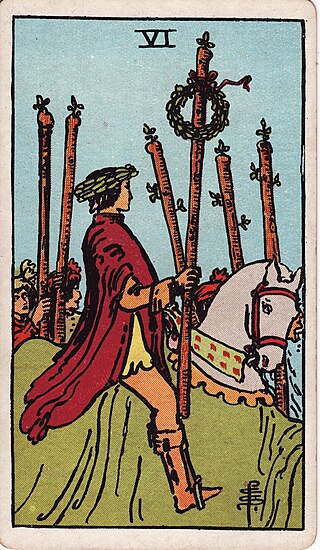
The Six of Wands, or Six of Batons, is a card used in Latin-suited playing cards, which include tarot decks. It is part of what tarot card readers call the "Minor Arcana," the six of wands cards in divination decks with illustrated pip cards, displays a laureled horseman bearing a staff adorned with laurel crown. Footmen with staves are at his side.

The Page of Wands is a card used in Latin-suited playing cards which include tarot decks. It is part of what tarot card readers call the Minor Arcana.
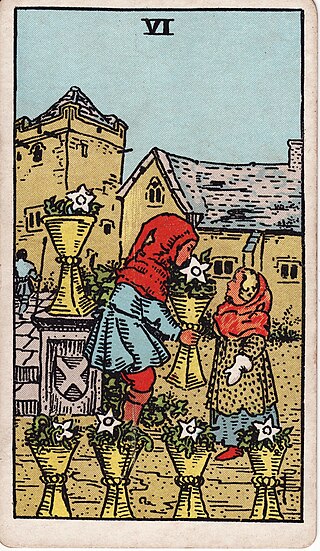
The Six of Cups is a Minor Arcana tarot card.
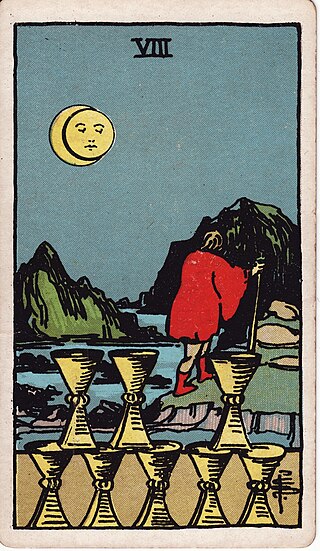
The Eight of Cups is a card used in Latin-suited playing cards, which include tarot decks. It is part of what tarot card readers call the "Minor Arcana"

Two of Cups is a Minor Arcana tarot card.
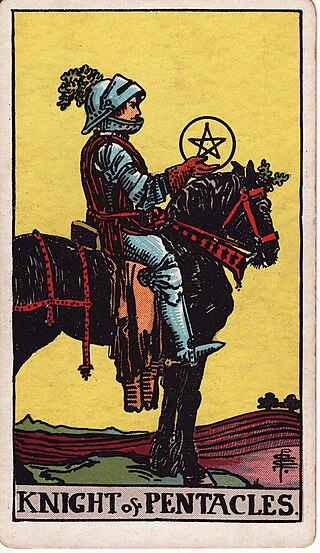
The Knight of Coins is a card used in Latin-suited playing cards which include tarot decks. It is part of what tarot card readers call the "Minor Arcana". The coins" suit is sometimes referred to as "pentacles" or "discs" instead.

The Two of Swords is a Minor Arcana tarot card.
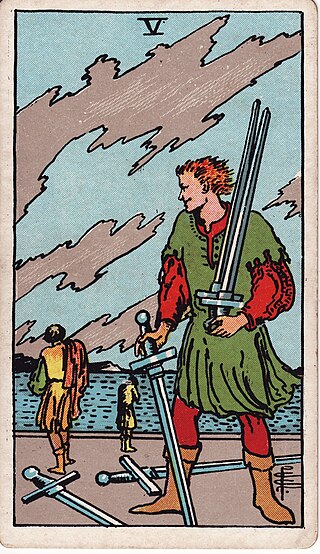
The Five of Swords is a Minor Arcana tarot card.
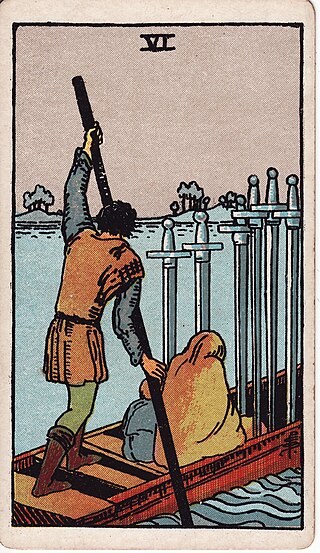
The Six of Swords is a card used in Latin-suited playing cards which include tarot decks. It is part of what tarot card readers call the "Minor Arcana".
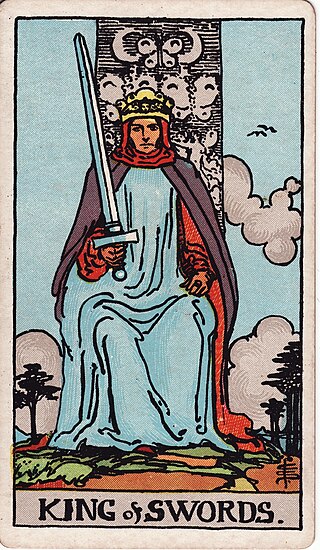
The King of Swords is a card used in Latin-suited playing cards which include tarot decks. It is part of what tarot card readers call the "Minor Arcana".
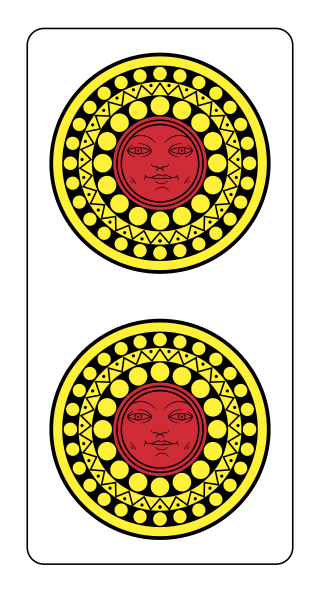
The Two of Coins, or Two of Pentacles, is a card used in Latin-suited playing cards which include tarot decks. It is part of what tarot card readers call the "Minor Arcana."

Four of Coins is a card used in Latin-suited playing cards, which include tarot decks. It is part of what tarot card readers call the "Minor Arcana".
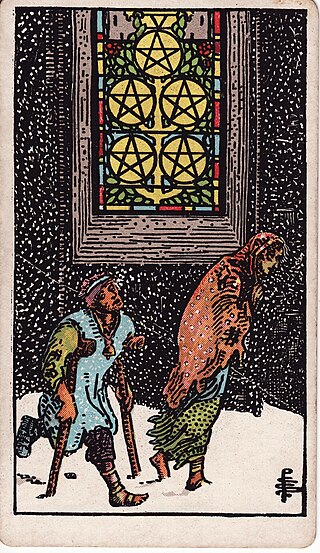
Five of Coins is a card used in Latin-suited playing cards which include tarot decks. It is part of what tarot card readers call the "Minor Arcana".

Page of Coins is a card used in Latin-suited playing cards which include tarot decks. It is part of what tarot card readers call the "Minor Arcana".
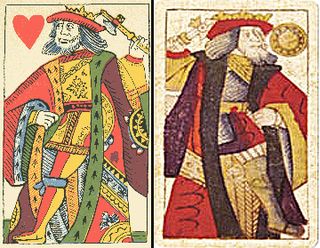
King of Coins is a card used in Latin-suited playing cards. It is the king from the suit of coins. In Tarot, it is part of what tarot card readers call the "Minor Arcana".
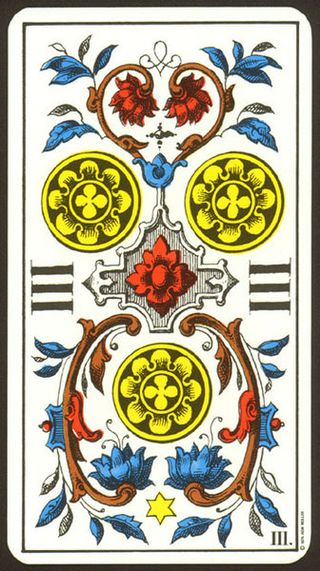
The suit of coins is one of the four suits used in tarot decks with Latin-suited cards. It is derived from the suit of coins in Italian and Spanish card playing packs.

The Ace of Wands is a tarot card of the Minor Arcana, arcana being Latin for mysteries. The cards of the Minor Arcana are considered to be lesser compared to the Major Arcana because they discuss the minor mysteries of life, less important archetypes. Modern tarot readers interpret the Ace of Wands as a symbol of optimism and invention.




















